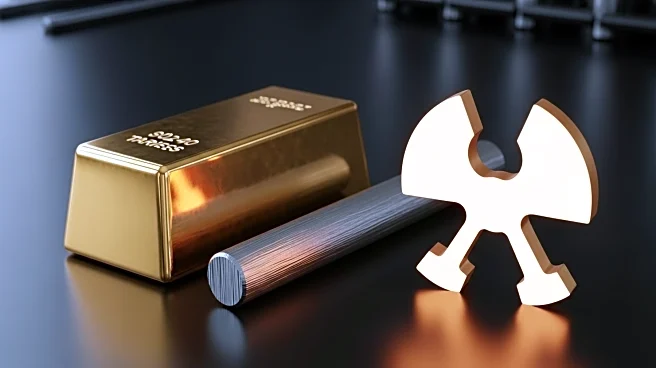What is the story about?
What's Happening?
President Donald Trump has issued an executive order exempting several metals, including gold, tungsten, and uranium, from country-based tariffs. This move is part of a broader strategy to address trade imbalances and national security concerns. The exemptions are set to take effect on Monday, following recommendations from U.S. officials. The order also facilitates bespoke trade deals with other countries, potentially easing tariffs on aircraft parts, pharmaceuticals, and products not produced domestically. The U.S. Trade Representative and Commerce Department are empowered to implement these agreements, reducing the need for further executive orders.
Why It's Important?
The exemption of these metals from tariffs is significant for industries reliant on these materials, such as aerospace, consumer electronics, and medical devices. It may lower costs and reduce market disruptions caused by previous tariff implementations. The move could also strengthen trade relations with countries like the European Union, Japan, and South Korea, fostering economic cooperation. However, the extension of tariffs on silicone products and other materials may impact sectors dependent on these imports, potentially leading to increased costs and supply chain challenges.
What's Next?
The U.S. Trade Representative and Commerce Department will begin implementing framework agreements with other nations, potentially leading to further tariff adjustments. Industries affected by the exemptions may experience changes in supply chain dynamics and pricing structures. Stakeholders, including businesses and trade partners, will likely monitor these developments closely to assess their impact on international trade and domestic markets.

















